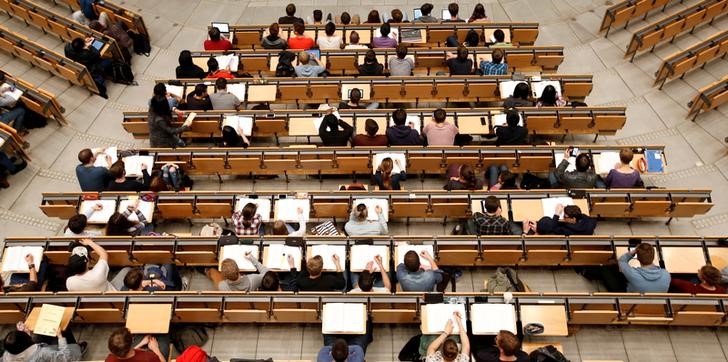U.S. stocks lower as investors rotate out of tech ahead of Jackson Hole
Investing.com -- The Trump administration is threatening to revoke an additional $1 billion in health research funding from Harvard University, escalating a growing standoff between the White House and the Ivy League school, the Wall Street Journal (WSJ) reported Monday, citing people familiar with the matter.
The conflict intensified after Harvard publicly released a letter from the administration outlining demands tied to federal funding. Trump officials had viewed the letter, sent last Friday, as a confidential starting point for negotiations and were caught off guard when Harvard published it on Monday. Initially, the administration had planned to treat Harvard more leniently than Columbia University, but is now applying greater pressure, per WSJ.
The letter came from the Task Force to Combat Anti-Semitism, a new panel created by the Trump administration. It demanded that Harvard allow federal oversight of admissions, hiring, and the ideological leanings of its students and staff—provisions Harvard sources say were nonnegotiable. The report also said university officials maintain there was no agreement to keep the letter confidential.
In an open letter to the Harvard community, President Alan Garber wrote, “the intention is not to work with us to address antisemitism in a cooperative and constructive manner.” He added, “we have informed the administration through our legal counsel that we will not accept their proposed agreement.”
The administration’s move comes after Columbia agreed to similar terms in an effort to preserve $400 million in federal support. According to the WSJ, the task force thought Harvard would also concede. Instead, Harvard’s public rejection positioned the university as a leading opponent to the task force’s approach, drawing attention to the issue and triggering criticism of the administration’s demands—even from some conservative circles.
In response, the White House froze $2.26 billion in funding and signaled potential additional actions, including threats to Harvard’s tax-exempt status and its ability to enroll international students. These measures could result in billions in lost revenue.
Harvard reportedly had reached out in March to avoid a conflict and believed it was aligned with general expectations from the administration. But when the more detailed April 11 demand letter arrived, Harvard saw it as a final offer, the report said.
Although the letter wasn’t labeled confidential, task force members insist there was an understanding that talks would remain private—an assertion Harvard disputes.
“Instead of grandstanding, Harvard should focus on rebuilding confidence among all students, particularly Jewish students,” a White House spokesman said. “The White House remains open to dialogue, but serious changes are needed at Harvard.”
Garber, the Harvard president, said in his message that while some of the administration’s demands addressed antisemitism, the majority amounted to “direct governmental regulation.”
